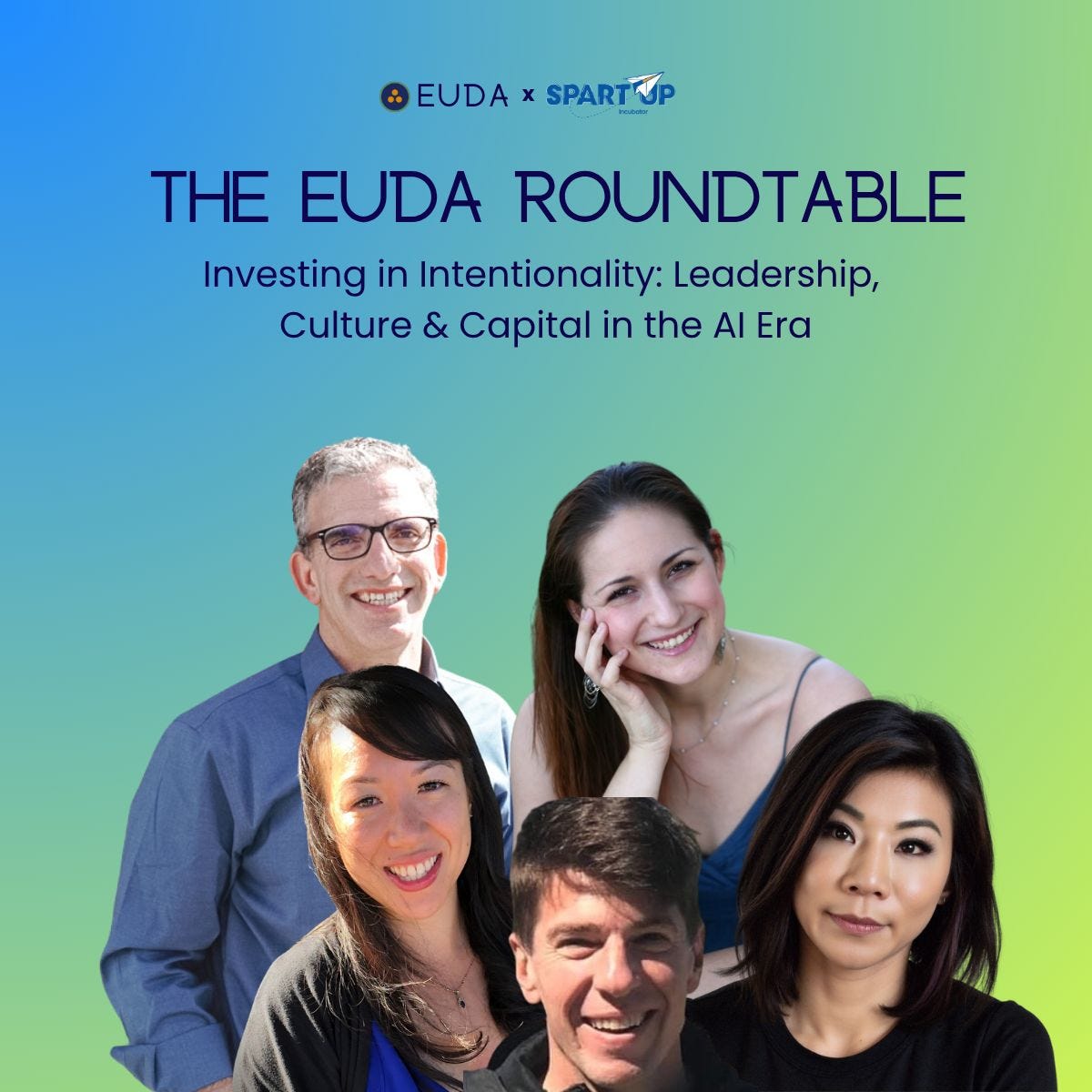More Than Just the Hustle, Startup Success Is About Being Human
At the Euda Roundtable, investors shared what makes a difference for early-stage founders: humility, clear communication and building team culture from the top down

I recently moderated a panel at the Euda Roundtable, an off-the-record gathering of founders and investors hosted at San Jose State University, in partnership with SJSU SpartUp! By the way, SJSU is my alma mater.
We covered a lot during the panel, including funding paths, solo founder myths, culture-building and how AI is (and isn’t) changing the early-stage experience.
But there was a comment that stood out for me:
“It’s useful to be a decent human.”
That was from an investor on the panel, and it wasn’t said for effect. Neither was the alternative version, “Don’t be an asshole,” a line that we said more than once. This all came up as we talked about founders and their relationships with investors. And as someone pointed out, those kinds of bonds often last longer than most marriages. You’re choosing partners, not just investors. So being someone others want to work with actually matters.
We hear a lot about the grind and the hard work needed to be an entrepreneur, not to mention the risk-taking, vision and execution. But “being decent,” or simply not being an A-hole, doesn’t show up on many checklists. After this conversation, I think it should be on top.
Here’s my explanation of why:
🔶 It means responding to emails on time, even when the answer is No.
🔶 It means knowing what you don’t know and being open to asking for help.
🔶 It means not taking your stress out on your co-founder or team when things get difficult.
🔶 It means building trust with the people around you before trying to sell them on your ideas.
One panelist told a story about a founder who delayed closing a funding round to take two weeks off for their wedding and honeymoon. Instead of seeing it as a red flag, the investor said it made them more confident. The thinking was that the founder was setting the tone for the right kind of culture they were trying to build.
In an era where AI can write your emails, generate your deck and analyze your pitch, the human part of being decent should matter more, not less.

Other lessons worth following
A few other takeaways from the roundtable event, including some direct advice and useful tidbits for any early-stage founder:
AI won’t save you. It’s fine to use, but don’t rely on it to replace skills you lack or interest you don’t have. As one panelist said: “If you hate coding, I don’t think AI will make you love building apps.”
Solo founders are rare, and often too risky. The myth of the one-person unicorn persists, but the reality is most great companies are built by teams. “No one person is good at everything,” one person said. And every Batman has to “find your Robin.”
Self-awareness is worth more than confidence. Investors value founders who know what they’re good at. And more importantly, what they’re not. One story involved a founder who didn’t know what kind of team they needed. That was the red flag.
Founders should ask for help and many don’t know how. That’s because ego, fear and inexperience can keep first-time entrepreneurs from leaning on advisors or other co-founders. “You have to learn how to ask,” a speaker said. “That’s part of being fundable.”
Culture is built from the top down. If the founder’s a jerk, the team probably is, as well. Several panelists made the point that “don’t be an asshole” isn’t just a moral stance, it’s a strategy for hiring and retention.
The old Silicon Valley mantra of “move fast and break things” doesn’t work with people. You can’t treat co-founders and employees like disposable assets. One investor compared bad team dynamics to a failing marriage: it’s painful, expensive and avoidable with good communication.
What stayed with me from the Euda Roundtable wasn’t a hot take on AI or a fundraising hack. It was this simple reminder: it’s helpful to be a decent human.
So here’s my question to you: What’s one underrated trait you think makes a great founder or a great teammate?
Drop it in the comments or send me a note. Would love to hear what you think.




